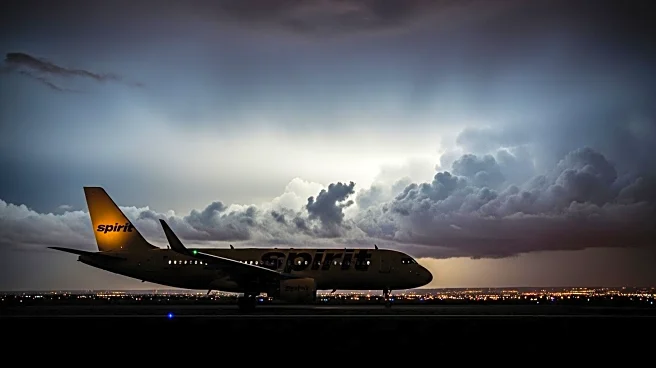What's Happening?
Spirit Airlines has announced that it will be ending its service to nearly a dozen cities this week. This decision marks a significant shift in the airline's operational strategy, potentially affecting numerous travelers who rely on Spirit Airlines for affordable travel options. The specific cities that will lose service have not been detailed in the source, but the move is part of a broader realignment of the airline's route network. This change comes amid a competitive airline industry landscape where carriers frequently adjust routes based on demand, profitability, and strategic goals.
Why It's Important?
The cessation of service by Spirit Airlines in these cities could have several implications. For travelers, especially those in smaller or less-served markets, this could mean fewer low-cost travel options, potentially leading to higher prices as competition decreases. For the airline, this move might be aimed at consolidating resources and focusing on more profitable routes, which could improve financial performance. However, it also risks alienating customers in the affected areas. The broader airline industry may see shifts in passenger traffic patterns as travelers seek alternative carriers or routes.
What's Next?
As Spirit Airlines implements these changes, affected travelers will need to seek alternative travel arrangements. Other airlines may see an opportunity to fill the void left by Spirit, potentially leading to new route announcements or increased service in the affected cities. Additionally, local economies in these cities might experience a short-term impact due to reduced air travel connectivity. Stakeholders, including local governments and airport authorities, may engage with other carriers to restore service and mitigate economic impacts.










